Five years ago, a law was passed by the UK Government mandating age verification for porn websites. But the porn sites seemed to have failed to comply with the age verification measures leading to easy access of extreme pornography.
Experts believe the viewing of pornography is associated with encouraging the normalizing of coercion and violence against women.
In a recent YouGov survey of 4,043 people it has been found that only a mere seven percent of those aged 18 to 29 were older than the legal age of 18, when they first watched porn. Additionally, one in eight youngsters were first exposed to the explicit sexual content before they were 12.
According to the YouGov poll, four in ten men saw porn for the first time while still underage, making up 59 percent of the 18-29 year old men. By contrast, only 17 percent of women watched porn when still underage.
Highlighting the influence of the internet on making pornography accessible for different age groups, the survey revealed that four in 10 Britons in their 30s (41 percent) first saw pornography while underage falling to a third of Britons in their 40s (32 percent), a quarter of Britons in their 50s (24 percent) and just 10 percent of those aged 60 and over.
In an attempt to regulate the access to pornography, the Government’s Online Safety Bill legally mandates pornography sites to check the age of viewers. It instructs the websites to check that children below 18 are not allowed access to the abusive material.
However, according to a report in the NY Times Post, a coalition of charities, organisations and experts don’t seem to have much faith in this Bill, claiming it will not protect children from exposure to online pornography.
The Centre to End All Sexual Exploitation (CEASE) is demanding strict age verification to prevent children from access to pornography.
Chief executive of CEASE, Vanessa Morse is quoted as saying, “We have a moral duty to keep kids off porn and, currently, we’re failing.
“Violent pornography is ubiquitous online and it is being viewed every day by thousands of children across the country.
“This not only causes untold damage to the child viewers but fuels a culture and acceptance of violence, particularly against women and girls, which has spread into real life, driving “rape culture”, normalising harmful attitudes and inspiring sexual harassment and abuse in all areas of society.”
Speaking about the Online Safety Bill proposing that watchdog Ofcom, the UK’s communications regulator will take each and every website that fails to comply with the Bill to court - before blocking access, Morse is reported to have said that the regulator does not have the capacity or means to do this.
She added, “We have repeatedly raised concerns that porn sites are targeting children with advertising and content designed to keep them on the sites for longer and returning more frequently, resulting in them viewing increasingly violating and harmful material.
“We need urgent action from the Government to give Ofcom greater power to block porn websites which fail to comply with age verification measures before more children are exposed to irreparable harm. Otherwise, it is toothless.”
Overall, the survey revealed that 28 percent of Britons watched porn for the first time underage, while 29 percent were over 18, and 24 percent never watched porn at all.






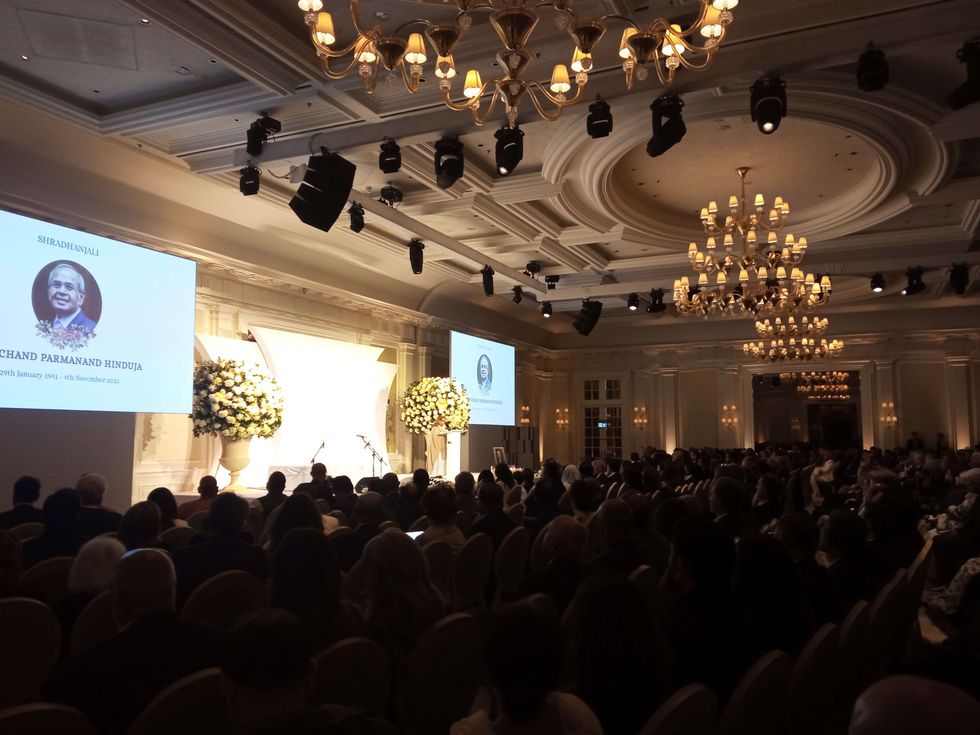 OWO Ballroom packed for memorial for Gopi Hinduja.
OWO Ballroom packed for memorial for Gopi Hinduja.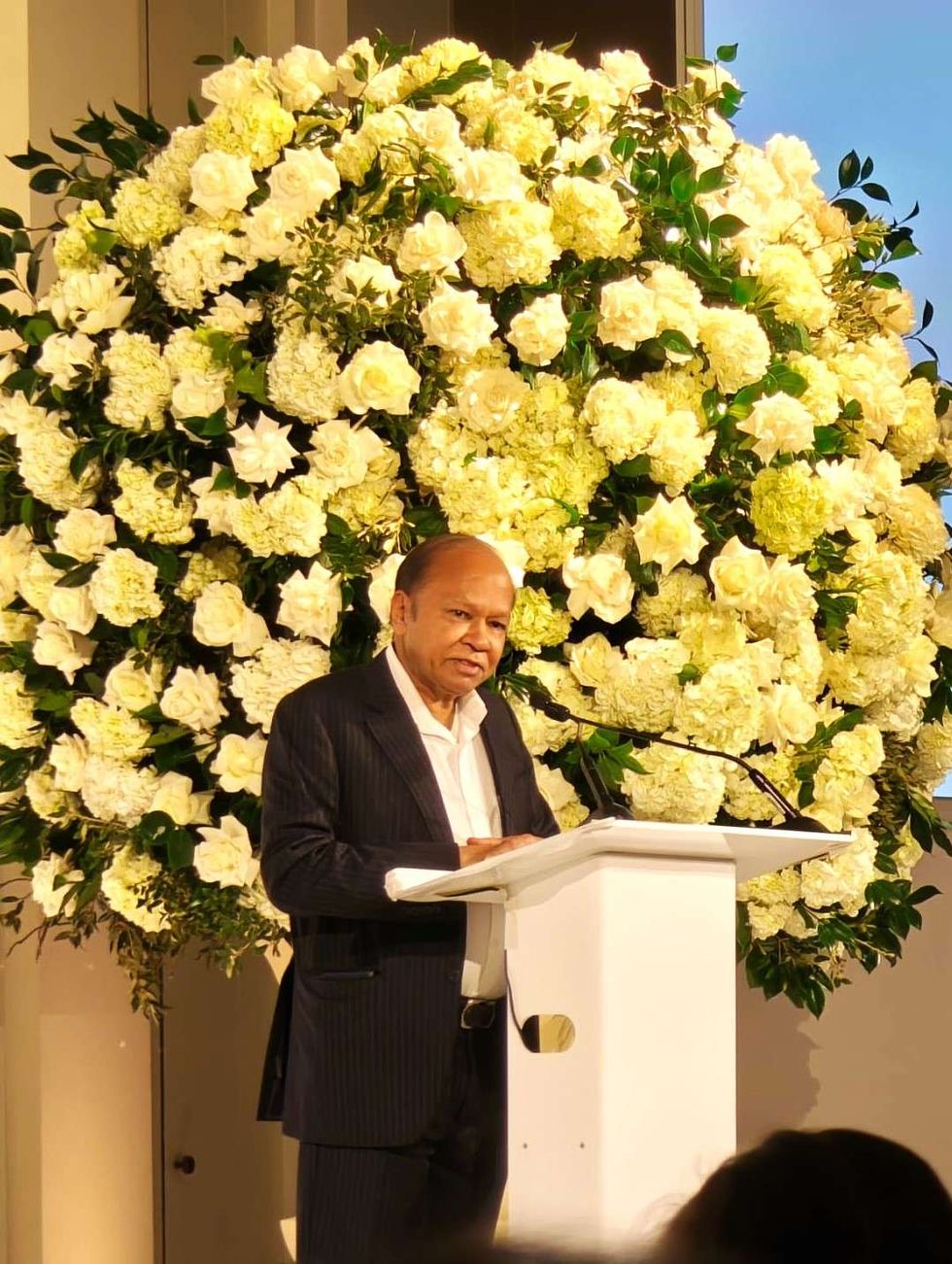 At OWO Ballroom, Sri Prakash Lohia.
At OWO Ballroom, Sri Prakash Lohia.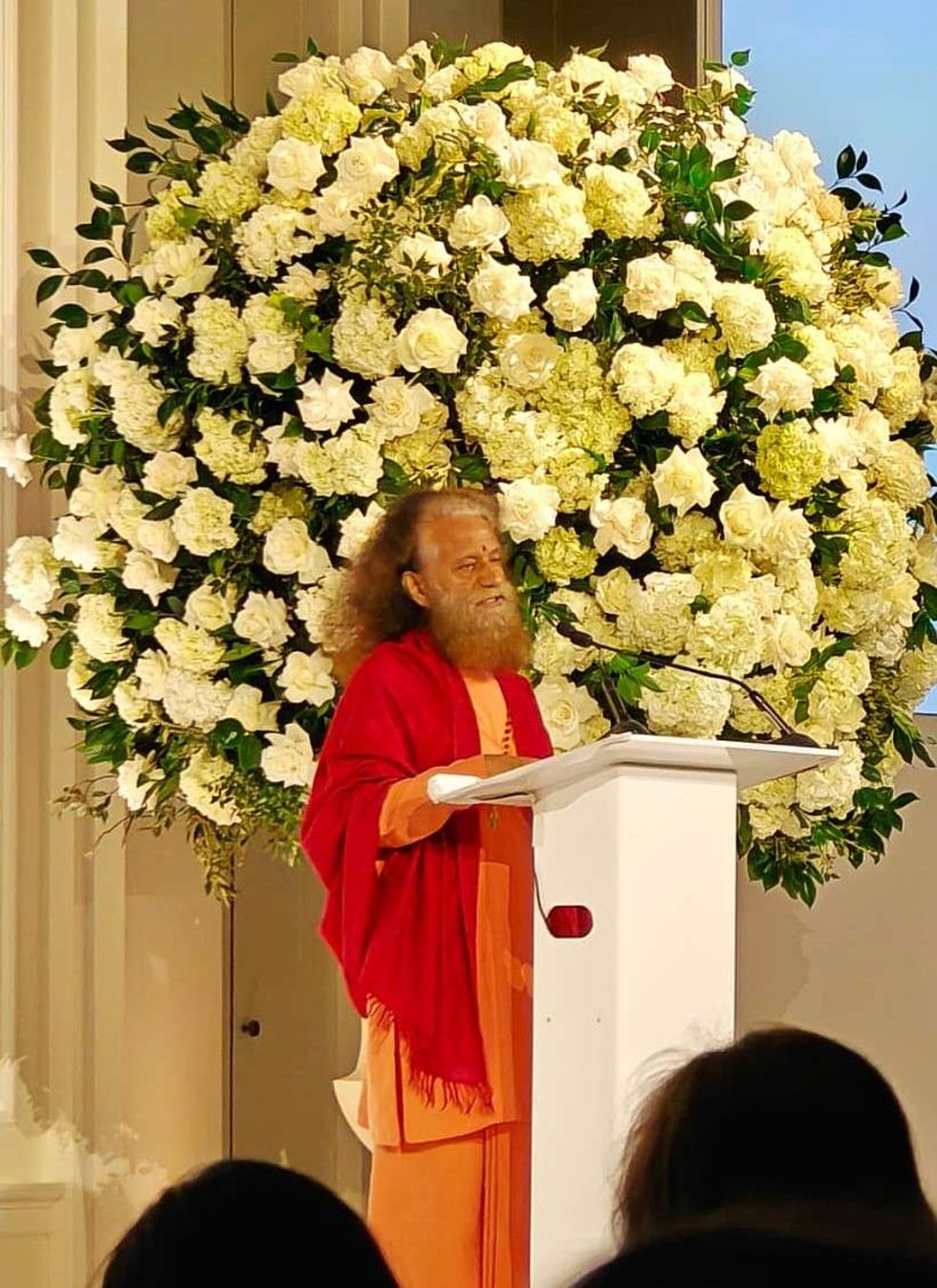 Swami Chidanand Saraswati at the memorial service.
Swami Chidanand Saraswati at the memorial service. Nitin Mukesh singing songs on Zoom during the memorial.
Nitin Mukesh singing songs on Zoom during the memorial.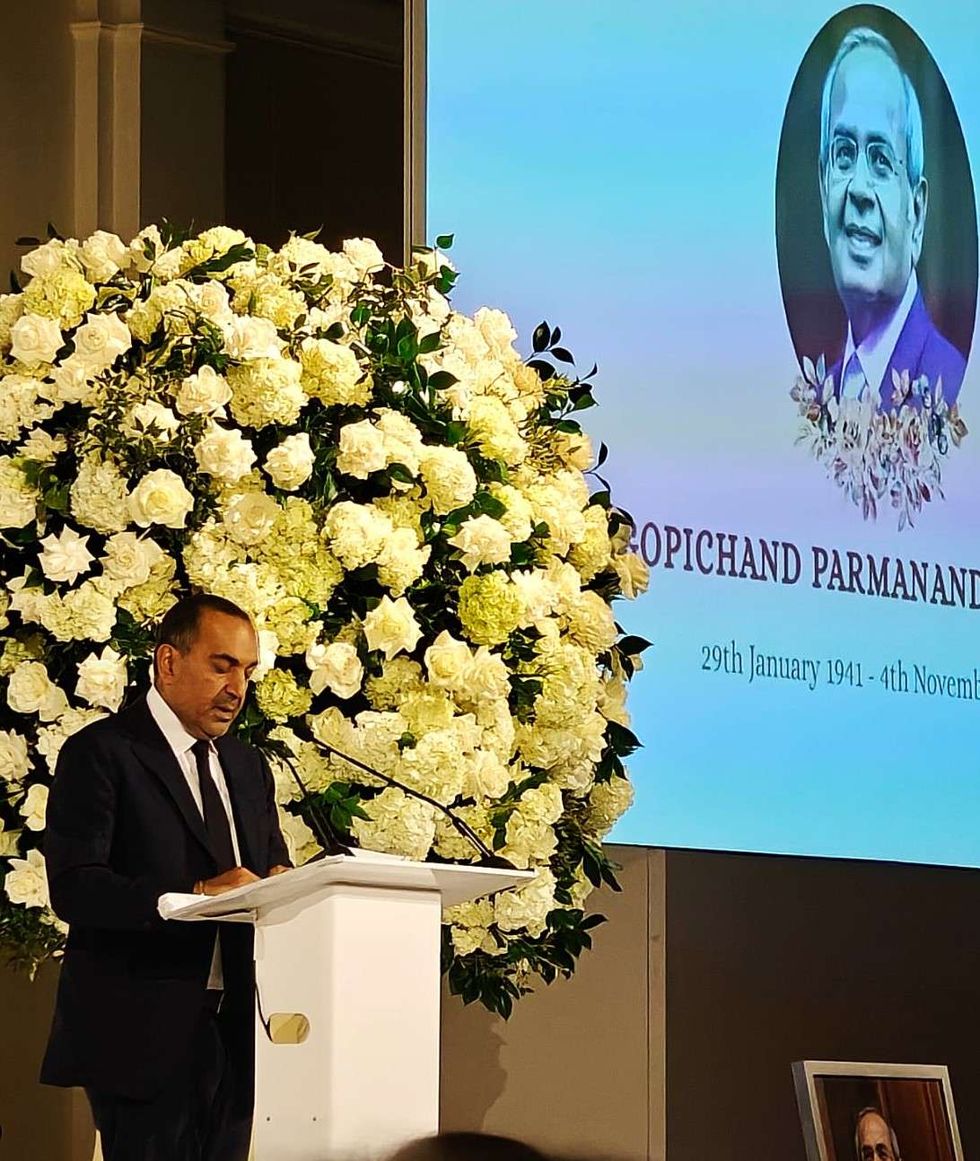 Sanjay Hinduja during the memorial.
Sanjay Hinduja during the memorial.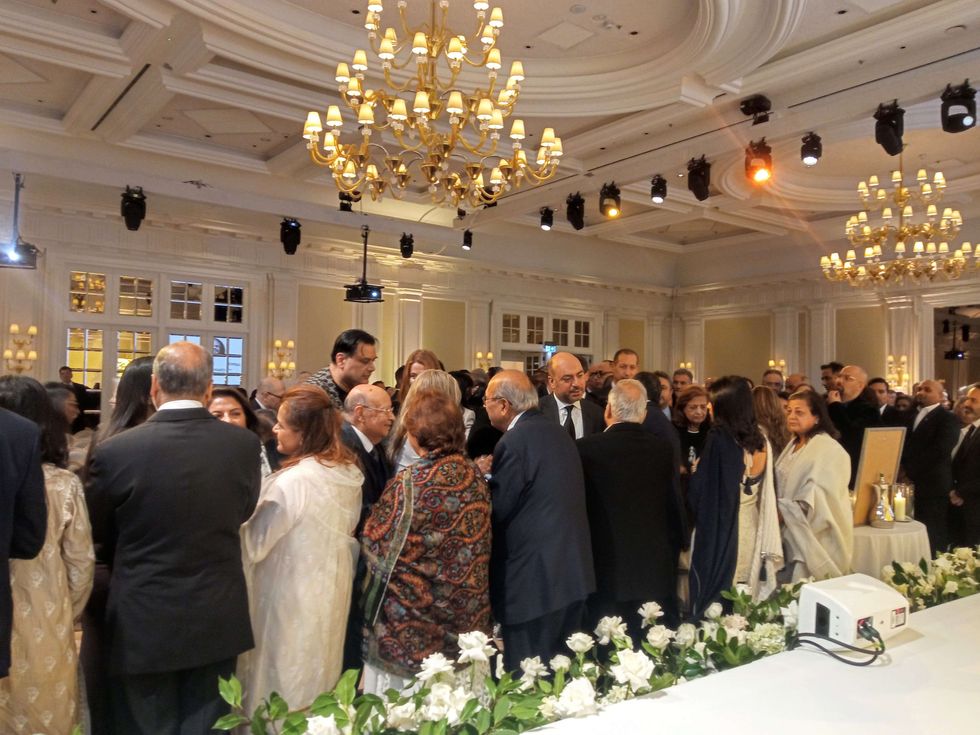 Hinduja family members meet those who attended memorial service.
Hinduja family members meet those who attended memorial service.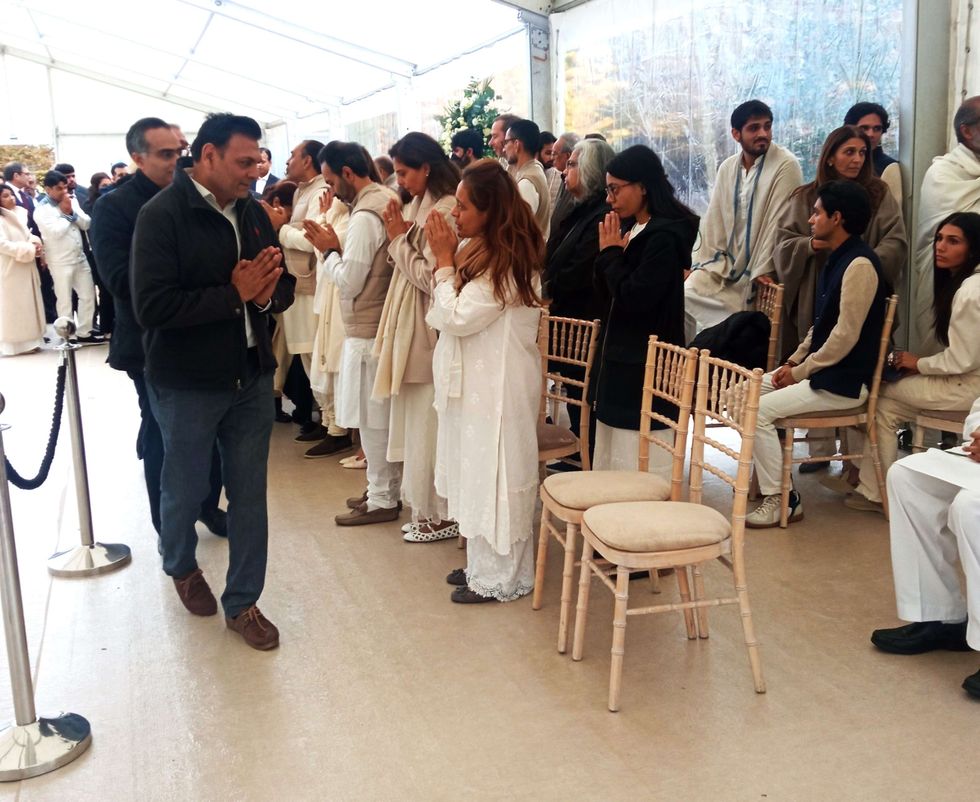 At Chilterns, mourners meet Hinduja family members.
At Chilterns, mourners meet Hinduja family members. Autumn was Gopi's favourite season.
Autumn was Gopi's favourite season.






